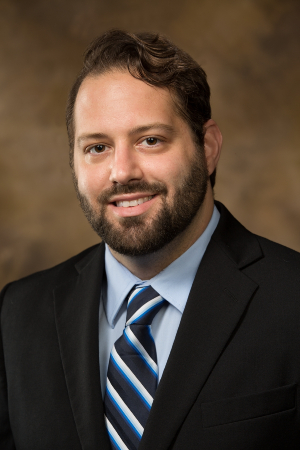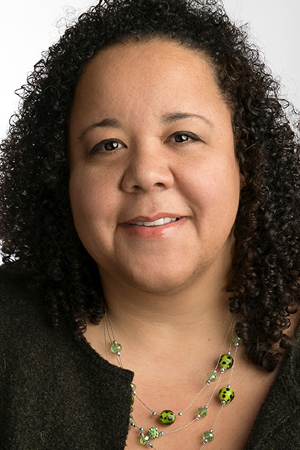The Section on Children and the Law promotes the communication and dissemination of ideas, interests, and activities among its members; fosters scholarship on legal issues surrounding children and the law, critical childhood jurisprudence, policy development, and curriculum development and teaching methodology for child-related courses; enriches the legal profession through greater awareness of child-related issues; promotes a greater diversity of perspectives within legal education; and makes recommendations to the Association on matters concerning children and the law.
Chair: Jordan Blair Woods, University of Arkansas, Fayetteville, Robert A. Leflar Law Center
Chair-Elect: Sacha M. Coupet, Loyola University Chicago School of Law


Jordan B. Woods: I went to a panel at the AALS Annual Meeting. I loved the panel and the papers that were being discussed, so I got involved with the section.
Sacha M. Coupet: If you build it, they will come! At my first Annual Meeting in 2004, I struck up a conversation with Ellen Marrus (University of Houston) about how frustrating it can be to not have a space solely for child law scholars. It felt like family and juvenile law was often crowded out by the plethora of issues that are anchored in the regulation of adult relationships. We proposed a new section and launched it with a lovely group of committed folks (including Odeana Neal at Baltimore and Joe Tulman from UDC). I continue to be thrilled when I hear about how people have fallen into this section, because we purposely find topics that would bridge many disciplines. I remember a packed, standing-room-only panel when we did kids, sex, and the law. That was the magic we were looking for.
JW: There are various forums in which we connect. What I love about this section the most is that it’s a very interdisciplinary section. Everyone has a common interest in bringing children’s and youth issues front and center. The discussion list is great for publicizing events that are relevant to what’s going on in the section. We also release a newsletter twice a year, to keep all of the membership updated on the new achievements of section members. There’s a lot of collaboration at different points during the year besides the Annual Meeting in January.
SC: We typically have an annual call for papers at the Annual meeting and two or three papers will be accepted from the call. The topic changes from year to year. This section always makes a deliberate effort to include juniors and newer scholars in our programming.
SC: There is a small core of folks who are decidedly child-focused: scholars who view legal issues primarily through that lens and contextualize children’s needs and interests in the broader context of who they are in relation to their parents and in the context of the family. But it’s a small pool, and still a subset of family and juvenile law.
We have developed a wonderful partnership with the Section on Sexual Orientation and Gender Identity Issues. We also have a radically diverse executive committee.
JW: Another thing that I love about this section is that I always learn from our programming. The ways in which the section wraps in new folks and gives them space to push different questions is one of our strengths. We don’t have the same discussion over and over again. That keeps people around and also invites newcomers that have different perspectives.
SC: We knew that everyone would have a program on the pandemic. Our newly-composed executive committee decided we should be asking the next question. Our program became framed as “the pandemic next time.” What we are learning now in the midst of COVID really is a dry run, revealing gaps in our safety net that we will need to attend to when climate change becomes even more impactful. Though we are not yet post-pandemic, I imagine that many programs will use that to frame conversations. I love that we have seized this moment to say, “How do we take these lessons and apply them to climate change and the issues that we are yet to confront.”
The co-sponsored program with the Section on Sexual Orientation and Gender Identity Issues is also very rich. These tough conversations mirror how complicated the issue of transgender athletes is. It has been a respectful dialogue and an opportunity to invite people to think together about our shared interests.
SC: The creation of our section mirrors the way in which a focus on children has emerged in the academy as well. People have long struggled, and we continue to struggle, with the place of children’s issues in the broader umbrella of the state regulating families.
I have also seen a growing interest in my students in this area. I’ve seen how conversations that were truncated or easily assumed to be part of traditional family law have now been given a broader platform. I think we are all charged with creating spaces for discussions about children’s law in a serious way, not as an afterthought.
JW: There’s one way to think of teaching children and the law issues as a standalone course. But I’ve noticed that I’m getting more questions about youth and children in my criminal and constitutional law classes. Because we have members from so many different backgrounds in the section, it’s been a space to think about children’s issues in the law curriculum more broadly. There are always vibrant conversations about that, both informally and formally. It’s never the same teaching discussions, which makes it fresh and exciting.
JW: I think this is a direction we should go moving ahead. We have the interest, especially among the executive committee, to have these conversations. My hope is to bring in new members to start building the infrastructure.
SC: This past summer, I was invited to write a short essay as part of a collection of tributes to our mentors. I loved reading how far back people could go in chronicling their relationship with their family law mentor. Our area of children’s law is so new that the mentors are our contemporaries in many respects. We may soon be at the point where we can call out someone whose body of work and impact in the community is robust enough to say it deserves recognition. I think as a newer section there must be some point at which you feel like you’re ready to recognize a career of excellence in the area and I believe we are getting to that point.
JW: Come to our programs and sign up for the section. Our programs are where so many of these conversations happen. I would encourage people that have any interest in youth or children’s issues, even if it’s not their primary focus, to come to see what we’re doing.